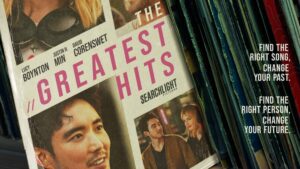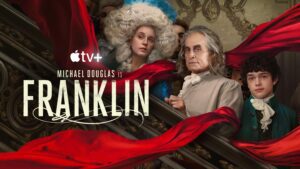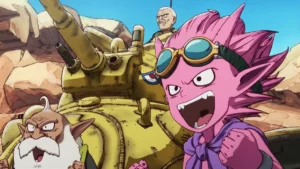Drive-Away Dolls 2024 Movie Review

During their collaborative tenure as filmmakers, Joel and Ethan Coen cultivated a reputation for unparalleled synchronization, often noted by their collaborators to respond identically to any query, even when asked separately. This uncanny synergy led to the duo being affectionately dubbed “the two-headed director.” However, their individual endeavors during a brief hiatus, though indicative of their shared sensibilities, reveal a nuanced departure from their collaborative efforts.
A stark juxtaposition emerges between the works crafted during their solo ventures—rumored to be reunited for their inaugural foray into horror—and showcases a distinct separation of their directorial personas. Joel’s austere and atmospheric interpretation of Macbeth stripped away levity and color, offering a bold revision of the Bard’s canon, while Ethan’s comedic romp, Drive-Away Dolls, emerges as the goofiest and most carefree addition to their collective oeuvre.
Despite superficial differences, Ethan’s ribald odyssey isn’t relegated to the realm of minor Coen miscellanea. With his wife and longtime editor turned co-writer, Tricia Cooke, whose queer identity infuses deeper personal stakes, Ethan navigates the film’s plot with broader, more sophomoric strokes. Yet, beneath its bawdy surface lies a poignant exploration of love and self-discovery, reminiscent of the Coen brothers’ signature blend of wit and pathos.
Drive-Away Dolls cleverly intertwines recognizable Coen-esque elements—such as a stolen briefcase reminiscent of “No Country for Old Men” and a pair of hitmen reminiscent of “Fargo”—with a novel setting on the cusp of the new millennium. Against the backdrop of Y2K paranoia and the impending conservative resurgence, the film navigates uncharted territory within the Coenverse, infusing humor with astute social commentary.
While the film retains the Coen brothers’ characteristic dialogue, replete with baroque phrasings and idle philosophical musings, it takes a lighthearted turn, predominantly focusing on euphemisms for carnal pleasure. This departure from their usual seriousness, while liberating, comes at the cost of their trademark directorial rigor, with a slightly relaxed approach evident in the film’s visual composition.
Yet, amidst the film’s whimsical narrative and psychedelic interludes, Drive-Away Dolls marks a pivotal moment in Ethan Coen’s artistic evolution. Embracing a newfound capacity for pleasure in the filmmaking process, Ethan’s wild detour into ribald comedy signifies a maturation rather than a regression. In this unconventional romp filled with dick jokes and stylistic indulgences, Drive-Away Dolls emerges as an essential addition to the Coen corpus, showcasing a director unshackled by conventions and reveling in creative freedom.




